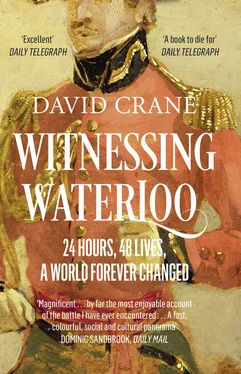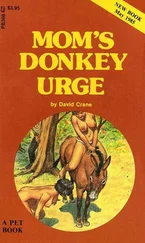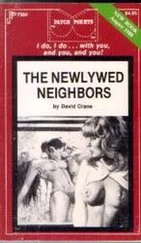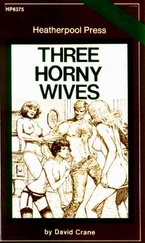He didn’t think he would ever recover from this, a tragic Thomas Fremantle wrote in his diary after being bowled out for a duck in a school match at Eton, and it is this profoundly human mix of the extraordinary and the everyday, that gives the day of Waterloo its peculiar, haunting character. For two long weeks in the June of 1815 the country had been forced to live in that anxious limbo between events and report, and even as Wellington’s rain-sodden army was retreating towards Brussels for the final, decisive battle, men and women across the country were still going to the theatre and science lectures, still working in the fields and the factories, still reading and writing their sermons, still applauding the Duke of York’s winners at Ascot and buying their lottery tickets, blithely unconscious that there was such a place as Waterloo, or that the children who would be born that Sunday would be born into a different Britain from the Britain that for the last twenty years had struggled with Revolutionary and Napoleonic France.
I should like to have been able to say that this book was the story of Britain’s pots and cats and chained men on this, the most important day in its nineteenth-century history, but that might lead to the wrong expectations. This is not a social history of the kind that tells what people wore or the time at which they ate, but a book about the intersection of the private and public spheres, about the ways in which individuals are touched by remote events, and how much – or how little – of what we usually think of as mainstream history actually impinged on the lives of ordinary men and women who witnessed Waterloo.
‘And what should they know of England who only England know?’ Rudyard Kipling asked in the last heady days of Empire, and the same question might just as well be posed of the Britain that defeated Bonaparte. The Regency age carries with it such brilliant aristocratic and literary associations that it is very hard to look past them, but this was as much the age of the Highland Clearances and brutal misery as of Byron, Prinny, and Almacks, an age of such violent cultural, intellectual and economic extremes and contrasts that it is difficult to believe that the events described here took place in the same century let alone the same country.
This is a book about that country, the Britain that fought Waterloo and the very different Britain that emerged triumphant from it, and if it says more about the casualties of victory than it does about its rewards then that is because the latter hardly need spelling out. For another hundred years the country would bask in the rich afterglow of victory, and yet while successive generations could grow up with the comforting assurance of God’s special dispensation for his chosen people, there was another Britain – the Britain of the prison and the poorhouse glimpsed here through the smoke of battle and the burgeoning mythology of Waterloo – that would never see the fruits of a war that had framed, blighted or ended their obscure lives.
This is the unique fascination of Waterloo, the chance it gives to see the country at that crucial moment in its history, fixed in all its trivial and mundane detail in the diaries, newspapers and letters of the time as firmly as Pompeii in the ash of Vesuvius. In the aftermath of the battle, Britain might enjoy prestige and power of a kind it had never known before; but if one could go back a day or even hours, if one could just go back to the Saturday evening of 17 June, to the Britain that ‘Mr Stevenson, engineer’ had buried in a time capsule at the opening of the new lighthouse at the Point of Caswell that morning – to a Britain that did not know it was going to win – did not know that the ‘Age of Waterloo’ was starting – a Britain that was no more united than the Edwardian Britain that would rush to war a hundred years later, what kind of country would we see?
I have begun the story of that night at the London home of Charles and Mary Lamb, where the fragile crust that separated Regency civilisation from brutal reality was at its thinnest, because their story is, in miniature, the story of the age itself. What lay behind the stuccoed elegance of Nash’s facades or the dazzling swank of Lawrence’s portraits on show at the Royal Academy this Saturday? What irresistible pressures for change were building up behind the matchless beauty and numinous historical resonance of England’s landscape? What would you have seen, if you could have looked through that telescope at Greenwich? Which lives, which stories unfolding that night, carried with them in some embryonic form the suggestion of the future?
And, finally, what was the Britain like that was in part created out of the mythology of Waterloo? For the men who fought it and the families who grieved it was a fight for freedom but for a great swathe of radical Britain it was the death knell of all their hopes. Which was it? Was Hugo, speaking as much as a liberal as a Frenchman, right? Or could the soldiers who fell along the Mont-Saint-Jean ridge at Waterloo die with the same confidence in their cause as their successors in Flanders a century later? The object of this book is to tell the story of that day and open out these questions. It shifts hour by hour, between Britain and Belgium, prison and palace, poet and pauper, though a warning note should be added to the timeframe of the events described. There are specific times here that we know from journals or memoirs or written orders, but how accurate they are is impossible to say. In Britain there would be no standardised time until the coming of the railways in the middle of the century – there might be anything up to twenty minutes difference between local mean time and Greenwich Mean Time – and when it comes to Belgium nobody can agree even so far as the time the battle began. Some contemporary accounts give it as early as nine in the morning, some recent historians as late as one in the afternoon. British officers’ watches would probably still be on London time, which explains why British accounts of the battle tend to place events earlier than French sources, but even within the allied ranks there was no synchronisation of watches that might narrow the gap. I have placed it – out of probability as well as narrative convenience – late in the morning as most of Britain was going to church and Sal and her tar were fondly looking at their cat.


‘The pilot who is carrying us into Liverpool, told us of Bonaparte’s return to Paris … Even in this age of tremendous revolutions, we have had none so appalling as this … When Napoleon was rejected from France, every man in Christendom, of honest principle and feelings, felt as if a weight of danger had been lifted from his prospects – as if he had a surer hope of going down to his grave in peace and leaving an inheritance to his children. But now the whole complexion of the world is changed again … God only can foresee the consequences.’
George Ticknor, 11 May 1815
In the early hours of 7 March 1815, the representatives of the five Great Powers meeting at Vienna to deliberate the future of post-Napoleonic Europe wearily adjourned the latest round of discussions. They had not solved the tricky problem of what to do with the king or the Kingdom of Saxony, but as they went to bed that night, they could, by and large, feel fairly satisfied with what they had done.
Читать дальше














